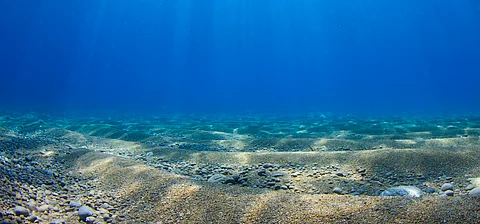

Countries gathered to develop regulations governing deep-sea mining in Jamaica are expected to discuss a contentious topic in week two.
Countries will discuss what would happen if mining applications for exploitation of mineral resources in the deep sea are filed before nations reach a consensus to adopt the regulations. The discussions are a part of the 30th annual session of the International Seabed Authority (ISA), an autonomous international organisation tasked with developing the mining code and ensuring effective protection of the marine environment from harmful effects that may arise from deep-seabed-related activities.
Deep-sea mining involves extracting mineral deposits from the deep-seabed at levels below 200 metres. The idea is to extract minerals like copper, nickel, cobalt, and rare earth elements. The Canada-based Metals Company has announced its intention to apply for an exploitation plan of work in June this year.
The agenda item was in the Provisional agenda for the meeting between March 17 and March 28, 2025, which states: “Further consideration of actions that the Council may take if an application were to be submitted before the Council has completed the RRPs (Rules, Regulations and Procedures) relating to exploitation”.
On November 12, 2024, Nauru, an island country in the southwestern Pacific Ocean, proposed adding the agenda item for the March meeting. It reads, “Consideration and adoption of a process for the Authority’s consideration and approval of applications for Plan of work for exploitation in the absence of adopted regulations on exploitation of mineral resources in the Area.”
This was opposed by Chile, which proposed amending this item to “Further consideration of actions that the Council may take if an application were to be submitted before the Council has completed the RRPs relating to exploitation”. Area is defined as the seabed and subsoil beyond the limits of national jurisdiction.
“Chile challenged this agenda item and put forward amendments to it on the basis that it is premature to discuss the procedure when an application has not been submitted yet,” Anindita Chakraborty, an officer at The Pew Charitable Trusts, told Down To Earth.
She explained that no decisions are expected in this meeting. However, she added that countries might discuss what the procedure should be to deal with a mining application in the absence of regulations.
“The request is not to discuss what the substance of the application’s assessment criteria will be, but the process for its consideration,” she highlighted.
In week one of the negotiations, countries discussed draft regulations on exploitation of mineral resources in the Area.
So far, countries have covered discussions on 30 of the 107 items. “Negotiations are slow and most fundamental parts of the regulations are still up for discussion—including on the payments made to the ISA in exchange for mining licenses, environmental safeguards, and enforcement and compliance mechanisms. No decisions on the mining regulations are expected at this meeting,” Chakraborty explained.
So far, 32 countries have announced their support for a moratorium, a precautionary pause, or a ban on deep-sea mining, according to the Deep Sea Conservation Coalition, comprising of over 100 member organisations worldwide.
The coalition has called for the ISA to adopt a moratorium until science proves no harm, reject exploitation applications, refuse the mining code and to prioritise ocean health over corporate greed.
Some companies have claimed that deep-sea mining is more environmentally friendly compared to land mining. Planet tracker, a financial think tank, looked for scientific publications and found that only three studies assessed the lifecycle impacts, of which two were funded by deep-sea mining companies.
The only independent study concludes that emissions from deep-sea mining are similar to terrestrial mining. All three papers agree that a vast majority of greenhouse gas emissions come from energy-and fossil fuel-intensive metallurgical processing and not mining, François Mosnier, Head of Oceans Programme with Planet Tracker, explained in a webinar held ahead of the meeting.